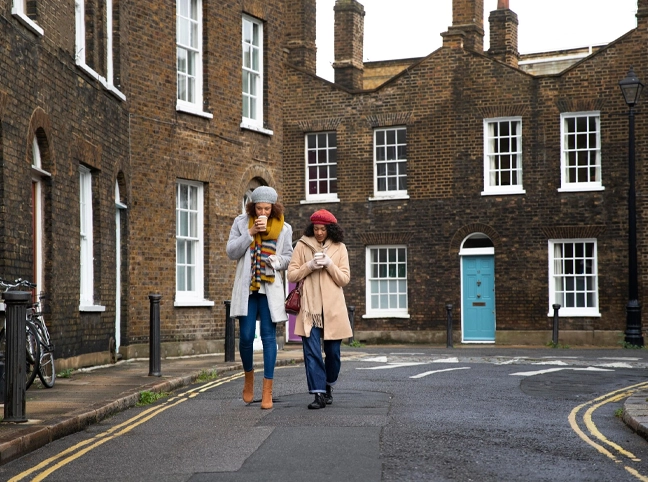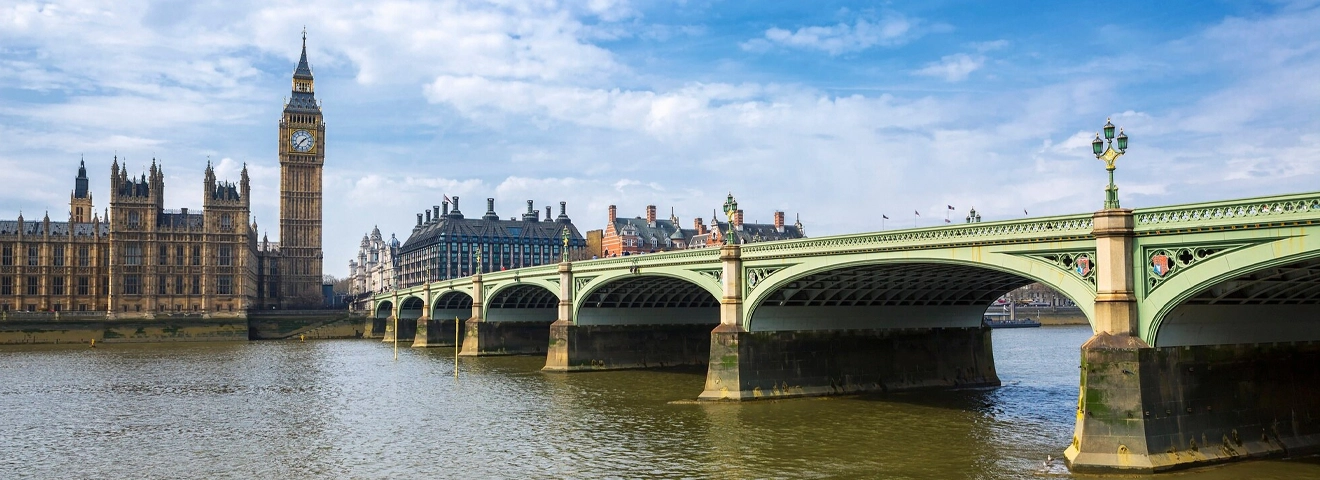Apply for Indefinite Leave to Remain (ILR) – Permanent Residency in the UK
Settle in the UK with Indefinite Leave to Remain

If you’re looking to apply for Indefinite Leave to Remain (ILR) in the UK, you’re taking a significant step toward establishing a permanent life in the UK. ILR grants you the right to live and work without restrictions, providing stability and peace of mind as you plan your future in the UK. As one of the final stages before British citizenship, ILR is an important milestone in your journey.
You can apply for ILR through several routes, with the most common being the Skilled Worker visa and Spouse/Partner visa routes.
Whether you’ve been contributing your skills to the UK’s workforce or building a life with a British spouse or partner, ILR offers the opportunity to settle in the UK and make it your long-term home.
If you're wondering how to apply for Indefinite Leave to Remain, Immtell is here to guide you through the process, ensuring you understand the requirements and prepare a successful application for permanent residence in the UK.
Why Apply for Indefinite Leave to Remain in the UK?
Indefinite Leave to Remain (ILR) is designed to give you security and more freedom in the UK. Here’s why it’s an ideal choice if you wish to apply for ILR in the UK:
- Work and Live Freely – ILR grants you the right to live and work in the UK without visa restrictions, opening doors to a stable future.
- Step Closer to Citizenship – ILR is often the key step before applying for British citizenship, giving you a route to full UK rights.
- Family Benefits – With ILR, you can live with family members in the UK and access benefits such as healthcare and education.
- Travel Flexibility – ILR allows you to travel in and out of the UK without needing a visa, giving you more freedom to connect with family and friends abroad.
With ILR, you gain lasting security and the ability to make the UK a permanent part of your life. If you're considering how to apply for Indefinite Leave to Remain, Immtell is here to help you navigate the process smoothly.
Immtell Supports Your ILR Journey
Achieving Indefinite Leave to Remain (ILR) in the UK requires meeting specific residency requirements and preparing a complete, accurate application. Immtell provides expert guidance to help you feel fully prepared as you work toward ILR. Here’s how we assist you in your journey to apply for ILR in the UK:
- Eligibility Assessment — We evaluate your current visa and residency history to determine your ILR eligibility and the best course of action.
- Comprehensive Document Preparation – From financial evidence to proof of residency, we ensure your application includes all the necessary documents to meet Home Office requirements.
- Application Management – Our team handles the paperwork, submission, and communication with immigration authorities so you can focus on planning for your future.
- Support with Residency Requirements – We help you track and meet the residency criteria specific to your ILR route, whether through a Skilled Worker, Spouse/Partner, or another UK visa route.
With Immtell’s expertise, your ILR application is clear, complete, and positioned for success. If you're wondering how to apply for Indefinite Leave to Remain, we’re here to guide you every step of the way.

ILR Routes – Skilled Worker, Spouse/Partner, and More
Indefinite Leave to Remain (ILR) in the UK can be achieved through a variety of routes, with the most common routes being:
- Skilled Worker Route – If you’ve worked in the UK on a Skilled Worker visa for five years, you may qualify for ILR. This route requires proof of your employment and continued residence in the UK.
- Spouse/Partner Route – Are you married to or in a long-term partnership with a British citizen or settled person? After five years of residence on a spouse or partner visa, you may be eligible to apply for ILR in the UK.
- Other Routes – ILR is also accessible through other visa types, such as the Innovator, Investor, or UK Ancestry visas, and the Long Residence route (after 10 years of lawful residency).
Each route has unique requirements, and Immtell provides personalised guidance tailored to your ILR route. If you're considering how to apply for Indefinite Leave to Remain, our team is here to help you navigate the process successfully.

Your Route to ILR in the UK– A Supportive and Structured Process
Applying for Indefinite Leave to Remain (ILR) in the UK can be complex, but with Immtell’s guidance, you’re never alone. Here’s how we make the process straightforward:
- Initial Consultation — We review your current visa status and long-term goals, recommending the best ILR route for your situation.
- Document Preparation – Our team ensures all your documents, including financial, employment, and residency proofs, are in order for your ILR application.
- Application Submission – We support your application submission, including follow-up and updates on progress, ensuring you stay informed throughout the process.
- Final Preparations – Once approved, we help you understand your new ILR status and the next steps toward full British citizenship, if desired
Ready to Settle in the UK? Start Your ILR Application with Immtell
Achieving ILR is a major milestone, and with Immtell’s support, your application can be both clear and seamless. Take the first step toward a permanent future in the UK today.
Further Reading

